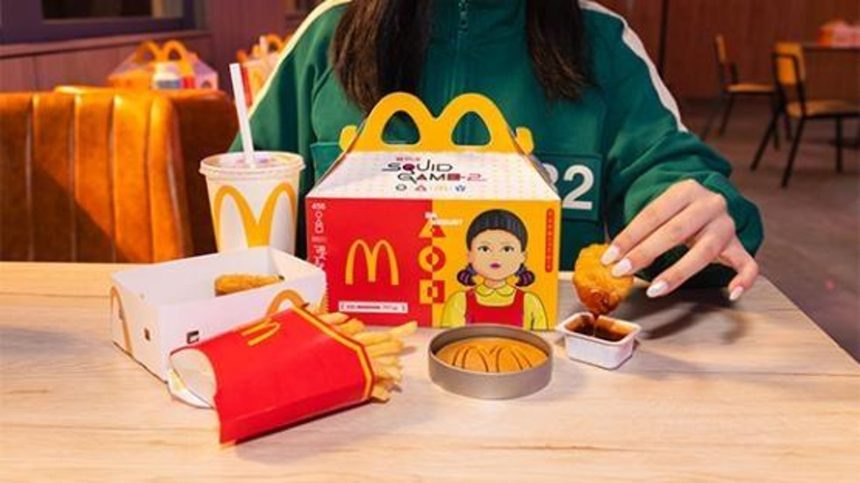The recent McDonald’s Squid Game-themed meal, exclusive to Australia, highlights a fascinating paradox of our globalized world: while technology and e-commerce grant access to a plethora of international goods, certain culinary experiences remain stubbornly tied to specific locations, fueling a potent sense of “fear of missing out” (FOMO) among those excluded. This FOMO is not merely about the food itself – a burger, fries, and a drink – but about the exclusive, fleeting moment of cultural participation it represents. This limited-time offer transforms a mundane meal into a desirable commodity, a collectible memory, and a topic of international conversation.
Fast food, unlike other consumer goods, resists the homogenizing forces of globalization. While one can readily order exotic snacks from across the globe, a sakura-flavored McFlurry or a paneer burger remains intrinsically linked to its place of origin. The ephemeral nature of these offerings – available only for a limited time and in a specific location – enhances their allure. It’s the immediacy, the in-the-moment experience that creates the buzz. This cannot be replicated through delayed gratification or online purchases. The very limitations imposed by geography and time amplify the desire, making the unattainable all the more appealing.
The Squid Game meal, launched in conjunction with the premiere of the show’s second season, leverages the global phenomenon surrounding the Netflix hit. It taps into the collective fascination with the series, transforming a simple fast-food meal into a cultural touchstone. For Australian consumers, partaking in this exclusive offering isn’t just about satisfying hunger; it’s about participating in a shared cultural moment, acquiring a tangible piece of the zeitgeist. The meal becomes a symbol of belonging, a marker of being “in the know.” This aligns with McDonald’s broader marketing strategy of intertwining its brand with popular culture, transforming itself from a mere purveyor of fast food into a cultural institution.
For those outside Australia, the inaccessibility of the Squid Game meal is further amplified by social media. Images and videos of the exclusive meal flood platforms like TikTok and Instagram, tantalizing those who cannot partake. These digital glimpses into the Australian experience exacerbate the FOMO, transforming a regional promotion into a global discussion. The very act of sharing these experiences online ironically broadens the meal’s reach while simultaneously reinforcing its exclusivity, further fueling the desire among those geographically excluded.
This dynamic underscores a fundamental tension in our globalized world: while technology ostensibly breaks down barriers and connects people across vast distances, it also highlights the limitations of that connectivity. The Squid Game meal embodies this paradox. It’s a readily accessible, globally recognized brand offering a product tied to a globally popular show, yet its availability is strictly regional. This creates a sense of longing, a reminder that some experiences remain stubbornly localized, inaccessible despite the interconnectedness of our world. This tension sustains the allure of fast-food FOMO.
The pursuit of these exclusive, geographically limited food experiences reveals a deeper cultural phenomenon. In a world where so much is homogenized and readily available, these localized offerings become symbols of regional identity, markers of place and belonging. The desire to experience these unique culinary moments transcends mere consumption; it becomes a quest for authenticity, a yearning for something tangible and unique in an increasingly homogenous world. The Squid Game meal, in this context, is not just a fast-food promotion; it’s a microcosm of how we consume culture in the digital age – a blend of global trends, local experiences, and the ever-present FOMO that fuels our desire for the exclusive and ephemeral. This phenomenon reminds us that even in a world of abundant choices, certain experiences retain a unique allure precisely because they are not universally accessible. It is this scarcity, this localized experience, that makes them truly desirable.



